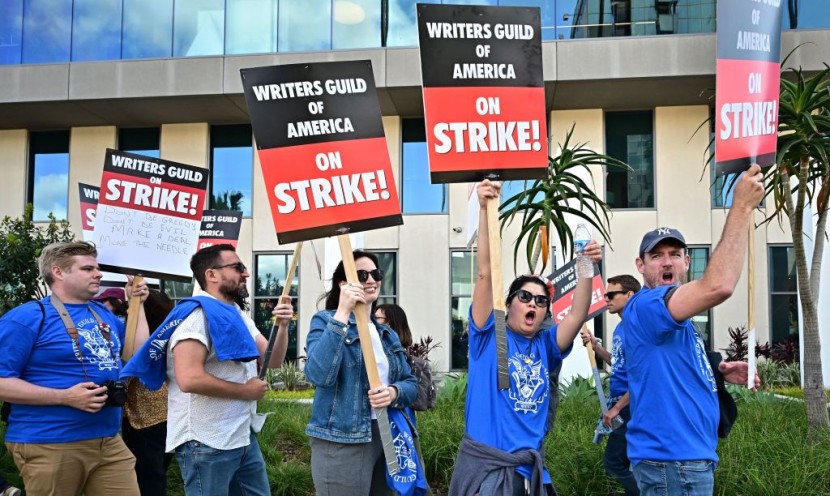The Writers Guild of America wants to restrict the use of Artificial Intelligence (AI) in writing film and television scripts. However, Hollywood studios rejected the idea and said they would be open to discussing new technologies once a year.
On Monday, Hollywood's film and TV writers went on strike, which marks the first work stoppage in 15 years due to the dispute over AI. The debate over the role of AI in the creative process will be pivotal to the future of entertainment.
The Concerns Over AI
There are two concerns writers have when it comes to AI-one, they don't want their material feeding AI, and second, they don't want AI to fix their sloppy first drafts, as reported by Reuters.
Currently, AI is helping erase wrinkles from an aging performer's face and draw animated short films, to name a few, in Hollywood. Some writers are experimenting with creating scripts using AI.
However, many writers fear that if AI is given too much control, it could ultimately lead to job losses and a decrease in the quality of content. They argue that AI cannot replace the human creativity and storytelling skills necessary for writing.
Read also: Hollywood Writers to Stage Walkout Over Streaming's Impact on TV Industry
The Impact of the Strike
The strike is expected to have a significant impact on the entertainment industry. This will halt the production of new TV shows and films, causing delays and potentially leading to a decrease in revenue for studios and networks.

They argue that they should have the final say in how their work is used and distributed rather than leaving it up to algorithms and AI.
The Future of AI in Entertainment
The strike highlights the growing debate over the role of AI in the creative process and its potential impact on the entertainment industry.
AI technology will inevitably play a more prominent role in the industry as it advances. However, it remains to be seen how this will affect the work of writers and other creatives.
The future of AI in entertainment will depend on finding a balance between the benefits of automation and the importance of human creativity. A compromise will likely be reached, allowing AI to assist in the creative process while preserving the essential role of human writers and other creatives.
AI in entertainment is not a new concept, as it has already been employed in areas such as music and film. However, recent advancements in machine learning have led to more sophisticated algorithms that can create content with greater precision and efficiency.
While some argue that this could lead to increased productivity and lower costs for production companies, others are concerned about the potential loss of jobs for writers and other creatives who machines may replace.
Additionally, there is worry over whether or not an algorithm can truly capture the nuances of human emotion and experience necessary to tell compelling stories.
Despite these concerns, many believe AI technology will ultimately enhance rather than replace human creativity. For example, it could assist writers by generating ideas or providing research support while leaving final decisions up to them.
Ultimately though, the decision on how much influence AI should have on creative processes must come from both industry leaders working together with creators themselves so they feel valued.
The future success of entertainment hinges upon striking a balance between utilizing technological advances like automation without erasing what makes art unique-human intuition, collaboration, and originality.
Related article: Writers Guild Members Approve Strike Over Compensation, Protection, Others
© 2026 HNGN, All rights reserved. Do not reproduce without permission.








